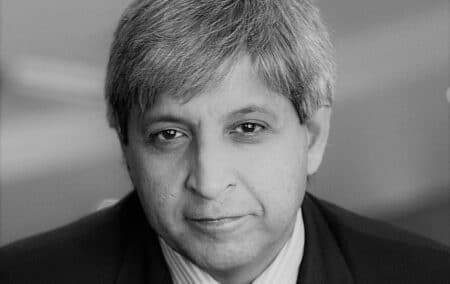Support for embattled academic Adam Habib is growing, with former public protector Thuli Madonsela, academic Barney Pityana and columnists Justice Malala and Palesa Morudu penning a letter calling for his immediate reinstatement as director of the University of London’s School of Oriental and African Studies (SOAS).
Habib, a former Wits vice-chancellor, was suspended three weeks ago from his new job as SOAS director after he used the N-word during a video meeting with students.
Madonsela, Pityana, Malala and Morudu said that while they believe Habib had ‘exercised poor judgement in verbalising the N-word’, they warned SOAS against ‘allowing the self-righteous to act as universal thought police’.
‘If this trend is not reversed, books and films that have the N-word will have to be revised or banned. August Wilson’s Fences will have to be pulled from classrooms, along with the works of Mark Twain,’ they wrote.
‘Quentin Tarantino’s Django Unchained will be banned or heavily edited. Muhammed Ali’s famous quote about the Viet Cong will have to be erased from history.
‘Universities that allow this to happen will contribute to the death of culture and knowledge production. They will no longer be places of learning, opting to become ‘safe spaces’ where diversity of views is not tolerated — and only loud voices that claim to be the ’authentic’ voices of historic oppression.’
Last month, IRR CEO Frans Cronje challenged academics and civil society groups that had previously endorsed Habib’s thinking, and journalists who had sought out his opinions, ‘to unambiguously stand up for him, because if you don’t there must be no doubt that one day the mob will come for you’.
Cronje added: ‘What is at stake here, and why groups and individuals even beyond those who know him, should also speak in his defence, is the reputation of an innocent individual beyond whose fate rests the question of whether there is a future for the free articulation of ideas and debates in academia and society more broadly.’
He pointed out that ‘the implication of the trial that [Habib] is being forced to endure is that free and reasonable debates within an academic context will become impossible to pursue’.
Cronje cautioned that qualified support for Habib – ‘suggesting that he erred or was not sensitive enough and should, therefore, given his track record “in the fight against apartheid” most absurdly, be forgiven’ – was ‘little better than endorsing the mob, because it seeks to appease it by evading the critical fact that he did nothing wrong at all and there is therefore nothing to be forgiven for’.
The IRR has written to Marie Staunton, the chair of the board of trustees at SOAS, to express these points.

